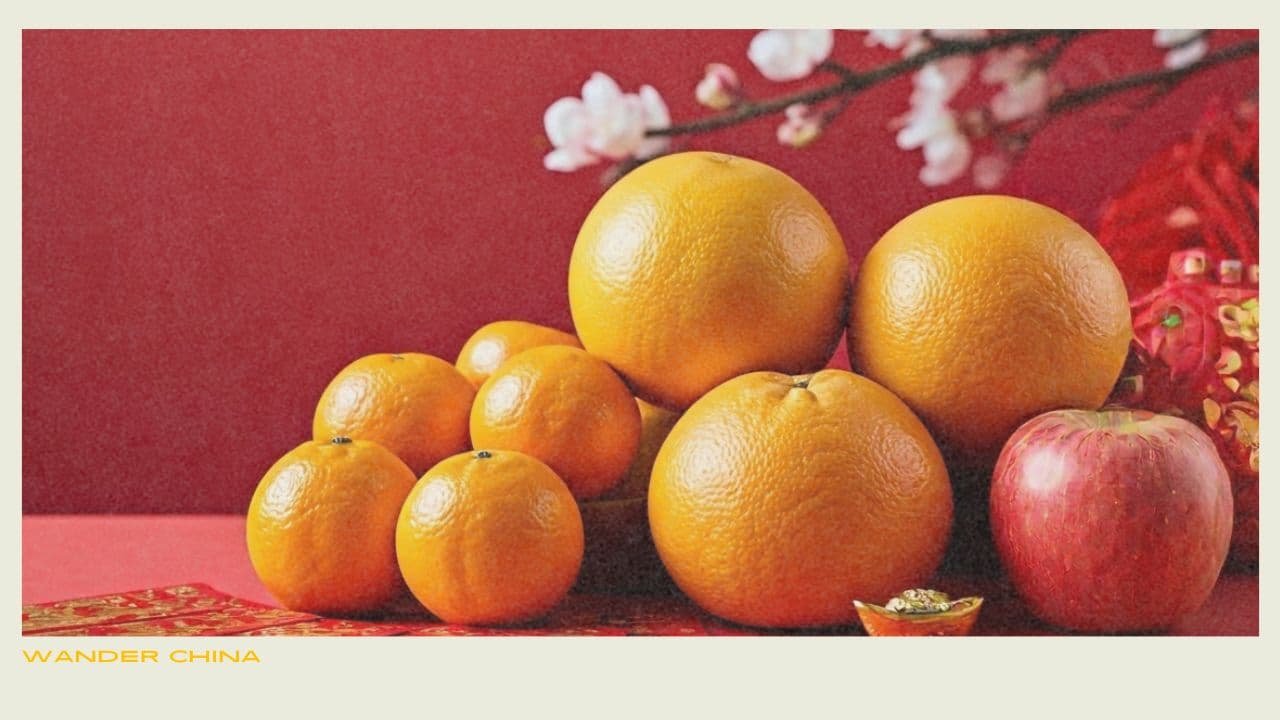Fruits Exchanged on Chinese New Year: Symbolic Traditions
Explore more on our blog for insights on this cultural practice.

Key Highlights
- During Chinese New Year, people exchange fruits. This practice shows good luck, prosperity, and well-being for the new year.
- Each fruit has its own meaning. They are often picked for their lucky color, shape, and name.
- Citrus fruits, like mandarin oranges, are important because they are linked to wealth and fortune.
- Different regions have different fruit preferences. This shows the rich cultures across Asia.
- Knowing the meanings of fruit exchanges helps us understand the important traditions of Chinese New Year.
Chinese New Year is an exciting celebration with deep cultural meaning. This festival includes many traditions that people have followed for a long time.
One special practice is giving fruits to each other, which carries strong symbols. It represents the values and hopes for the lunar new year. This tradition is not only important in China but is also valued in other Asian countries that celebrate the Lunar New Year. This highlights how meaningful and influential the culture is.
Understanding the Tradition of Exchanging Fruits on Chinese New Year
Giving fruits during the Lunar New Year is not just a kind gesture. It shows hope for good luck and prosperity in the new year. People give these gifts to family, friends, deities, and ancestors. This act shows respect and asks for blessings.
The practice of giving fruits comes from the idea that some fruits have special meanings. These fruits represent good things such as abundance, long life, and happiness. When we choose and display these fruits thoughtfully, their positive meanings grow stronger. This shows how important it is to welcome the new year with lots of good energy and luck.
The Symbolism Behind Fruits in Chinese Culture
Chinese culture puts a lot of weight on symbols, and fruits play an important role in this. Citrus fruits, such as mandarin oranges, are highly valued. Their bright orange color shines like gold coins. This symbol represents wealth and good fortune.
The round shape of many fruits symbolizes wholeness, unity, and good relationships. This idea connects to the Chinese New Year. During this time, families and friends gather to celebrate and strengthen their bonds. When they share these special fruits, it reflects their important beliefs and goals.
Exploring Regional Variations in Fruit Exchanges during Chinese New Year
Fruit exchanges are important in Chinese New Year celebrations across Asia. However, each region has its own twist on this tradition. In South Korea, during Seollal, the Korean New Year, persimmons are a favorite. Their bright red color stands for joy and good luck.
In Southeast Asian countries like Malaysia and Singapore, local fruits like pomelos and pineapples play a big role. These fruits reflect the diverse traditions and influences in the region. The various customs show how lively the cultures are. Still, they all share a goal of welcoming the new year with prosperity and joy.
10 Symbolic Fruits Shared During Chinese New Year
Here are 10 fruits often given as gifts during the Chinese New Year:
| Fruit | Symbolic Meaning |
|---|---|
| Mandarin Oranges | Wealth and prosperity |
| Kumquats | Good luck and prosperity |
| Tangerines | Wealth and good fortune |
| Pomelos | Family reunion and abundance |
| Apples | Peace and harmony |
| Grapes | Abundance and prosperity |
| Pineapples | Wealth and good luck |
| Pomegranates | Fertility and longevity |
| Sugarcanes | Success and progress |
| Watermelon | Luck and prosperity |
These fruits are usually nicely placed in baskets or on plates. They are given as gifts or shown off in homes to bring good luck and blessings for the coming year. Many families also put small kumquat trees filled with fruit to show they wish for a rich and successful year.
Conclusion
The practice of giving fruits at Chinese New Year is very meaningful. Each fruit has its own special meaning, like good luck or prosperity. For example, oranges mean abundance and wealth. The different ways people share fruits show the variety of Chinese culture.
When we understand what these fruits represent, we appreciate the customs that bring joy and well-being during this important time. Please share your thoughts or experiences about fruit sharing during Chinese New Year in the comments below. Let’s celebrate the happiness and blessings that fruits bring to this festive season!
Frequently Asked Questions
What does giving fruit symbolize in Chinese New Year?
During Chinese New Year, giving fruits is a way to share good wishes. These wishes include good luck, a long life, fertility, and success. This practice shows hopes for a year filled with blessings and good fortune for the person who receives the fruits.
Why are oranges considered lucky for Chinese New Year?
In Cantonese, the term for citrus fruits, like oranges, is similar to the word for “gold.” This similarity makes them symbols of good fortune and prosperity during the Lunar New Year. Their bright color adds to their special meaning.
Why Are Mandarin Oranges so Popular During Chinese New Year?
Mandarin oranges are a popular snack for the Chinese New Year. People like them not just for their sweet taste but also for their meaning. They represent wealth and good luck. The Chinese word for mandarin sounds like the word for “gold.” That’s why their golden color stands for luxury and prosperity.
Recent Posts
- Top Guangzhou Watch Markets to Visit in 2025: The Ultimate Insider’s Guide
- My Guide to the Best Home Appliance Markets in Guangzhou
- Guangzhou Garment Wholesale Markets: My Local Guide
- Best Hotel in Guangzhou: A Comprehensive Guide for Foreign Travelers
- Guangzhou Food Guide: Must-Try Dishes & Top Restaurants (2025 Edition)
Recent Comments
Top Guangzhou Watch Markets to Visit in 2025: The Ultimate Insider’s Guide
I visited the top watch markets in Guangzhou to show you where...
My Guide to the Best Home Appliance Markets in Guangzhou
Explore top offline home appliance markets in Guangzhou with local tips, Chinese...
Best Hotel in Guangzhou: A Comprehensive Guide for Foreign Travelers
Find the best hotels in Guangzhou—from luxury icons to local favorites. Updated...
Guangzhou Food Guide: Must-Try Dishes & Top Restaurants (2025 Edition)
I’m an expat in Guangzhou sharing the best local dishes, top restaurants...







Leave a comment